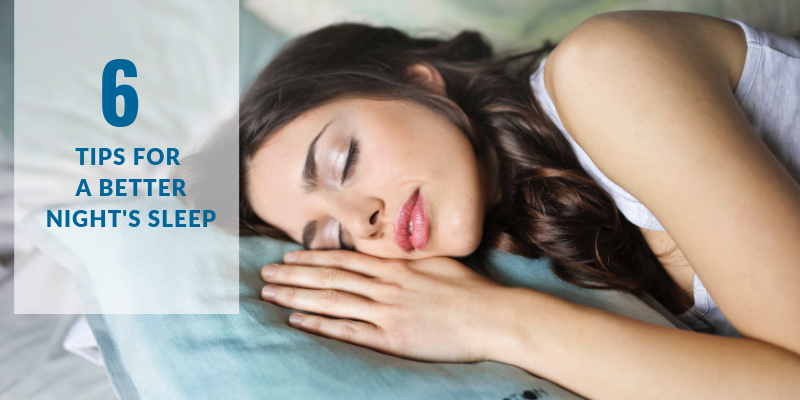6 Tips for a Better Night’s Sleep

Most adults need between six and nine hours of sleep each night. Yet, according to the 2018-2019 Great British Sleeping Habits survey, 23% people living in the UK only get five to six hours of sleep each night.
Do you feel refreshed in the morning and throughout your day? If not, it may be worth having a look at ways to improve your sleep.
Set a routine
By going to bed at roughly the same time each day, you will help programme your brain and body to know it’s time to start winding down for rest.
Clear your mind
Clear the ‘to-do’ list from your mind before bed by writing down your worries or tasks that need to be sorted in a notepad.
Listening to relaxing music or soundtracks is a good way to relax the mind and ease you into sleep. You could also use Meditation apps, such as Headspace, to help you clear your mind and better prepare you for a good night’s sleep.
Exercise regularly
Exercise is a stress reliever and could help you improve your sleep. However, try to avoid vigorous exercise just before bed as it could have the opposite effect.
Make your bedroom a sleep haven
Your bedroom should be a place that you go to relax at the end of your day and get a good night’s rest for what’s to come the next day. Is your bedroom conducive to a good night’s sleep? Consider the temperature of your room, the amount of natural light streaming in, the noise. Is your bed comfortable? If you find any of these factors prevent a restful night’s sleep, consider how these can be addressed to improve your sleep.
Cut out caffeine
Latte. Flat White. Frappuccino. However you take it, many of us enjoy a coffee or caffeine each day. Caffeine can interfere with the process of falling asleep and prevents deep sleep. Avoid coffee, cola, caffeinated tea or energy drinks in the afternoons or evening hours.
Screen time
The blue light emitted from our phones, TVs, tablets or laptops can prevent us from getting to sleep as well as staying asleep. Did you know that this is because blue light affects our circadian rhythms?
Consider putting down and turning off electronics at least an hour before bed.
Go Back
